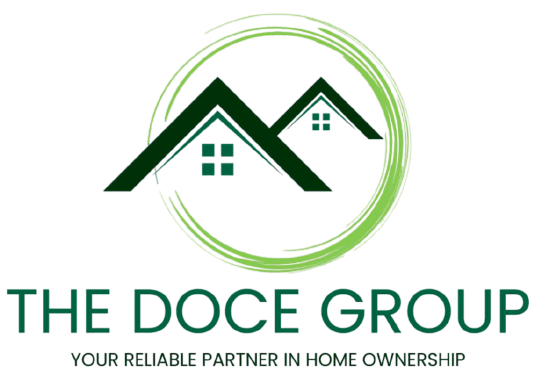When it comes to securing a mortgage, the choice you make between long-term and short-term mortgages can impact your financial future in a big way. We are one of the best mortgage lenders in Florida, and our aim is to provide you with information that will enable you to make an informed decision. This comprehensive guide will help you differentiate between long-term and short-term mortgages as well as how to determine which one is suitable for you.
Understanding Long-Term Mortgages
Long-term mortgages, typically lasting 30 years, are the most common type of home loan. They offer several advantages, making them a popular choice among homebuyers.
Benefits of Long-Term Mortgages
Lower Monthly Payments: One undoubted attraction of a long-term mortgage is low monthly payments. By spreading the loan over thirty years, this reduces what one has to pay each month, hence making homeownership more affordable.
Increased Affordability: With lower monthly payments, you may qualify for a larger loan amount, enabling you to purchase a more expensive home than would be possible with shorter-term loans.
Financial Flexibility: Lower payments offer more financial options. You could put the extra cash towards other financial goals like saving for retirement, investing or building an emergency fund.
Easier Budgeting: Budgeting becomes simpler when there are consistent, predictable payments over an extended period of time. Therefore, planning finances becomes easier and preferred than running into uncertainty with changing monthly costs.
Tax Benefits: Mortgage interest is tax deductible, and having a long-term mortgage allows these deductions to extend over a longer time span.
Drawbacks of Long-Term Mortgages
Higher Total Interest: The entire interest paid on such loans during their life is higher compared to short–term ones, even though their monthly repayments tend to be lower.
Slower Equity Build-Up: Compared to short-term mortgages, building up equity in your house takes more time if you use a longer-term mortgage. Thus, in the beginning years, most of your payment goes to interest rather than principal.
Extended Financial Commitment: A 30-year mortgage means that one has a longer period of financial obligation, which may not be suitable for everyone’s long-run goals.

Exploring Short-Term Mortgages
There are also some short-term mortgages that last about fifteen years and come with a set of benefits and challenges. They often present an attractive alternative for people who want to pay off their houses more quickly as well as save on interest costs.
Benefits of Short-Term Mortgages
Lower Total Interest: The main advantage of a short-term home loan is the considerably smaller sum paid in terms of total interest over the lifespan of the loan. This can represent substantial savings.
Faster Equity Build-Up: In the shorter term, a larger percentage of the monthly payment is directed towards paying back the principal, thereby building equity in your house more rapidly.
Quicker Payoff: Paying off your mortgage in 15 years means you’ll own your home outright much sooner, freeing up your income for other financial goals.
Potentially Lower Interest Rates: Short-term loans frequently feature lower rates compared to long-term finances, thus reducing the cost implications further.
Less Risk of Market Fluctuations: With a shorter term, you’re less exposed to potential market fluctuations and interest rate changes over a longer period.
Drawbacks of Short-Term Mortgages
Higher Monthly Payments: The biggest downside lies in high monthly payments, which restrict your budget and affect financial flexibility.
Tighter Qualification Criteria: For short-term mortgages, you require a higher income and lower debt-to-income ratio because the payments are high.
Less Financial Flexibility: The more you spend on your mortgage, the less flexibility you have for other things, such as meeting unexpected expenses and achieving other financial objectives.
Making the Right Choice
Choosing whether to take a long-term or short-term mortgage will depend on your current financial state, ambitions, and preferences. These are some of the elements to consider when selecting between these two choices:
Your Financial Situation
Income Stability: If you are earning well all the time, then you could be better off with a short-term mortgage. On the other hand, if your monthly income is variable in nature, then you can go for a long-term mortgage that has more provisions.
Debt-to-Income Ratio: Either way, your debt/income ratio determines whether or not you qualify for this category. Higher ratios tend to restrict people’s options in terms of the duration they can opt for.
Savings and Emergency Fund: Look at savings as well as emergency funds. Monthly installments with regard to short-term mortgages can stretch one’s budget until he/she cannot save adequately.

Long-Term Financial Goals
Homeownership Timeline: If you plan to stay in your home for a long time, the lower payments of a long-term mortgage might be more beneficial. If you want to pay off your home quickly, a short-term mortgage is preferable.
Investment Opportunities: With lower monthly payments on a long-term mortgage, you can invest the difference in other financial opportunities, potentially yielding higher returns.
Retirement Planning: Consider how your mortgage fits into your retirement planning. A short-term mortgage allows you to enter retirement mortgage-free, while a long-term mortgage might require careful planning to avoid debt in retirement.
Risk Tolerance
Interest Rate Risks: Long-term mortgages expose you to potential interest rate increases over time. Thus, if you aren’t interested in gambling with interest, then the fixed payments of the short-term loans may as well suit you best.
Market Fluctuations: Consider your comfort level with market fluctuations. Short-term mortgages reduce exposure to long-term economic changes.
Conclusion
Deciding whether to go for a long or short-term mortgage is a big financial decision that should reflect your current financial situation, future goals, and how much risk you can stomach when investing. It’s our duty as your trusted home loan provider and adviser to assist clients like you make this choice and get the best deal possible on a mortgage for their unique circumstances. By understanding the advantages & disadvantages of each loan option, one will be better placed when making such decisions based on monthly payments or debt reduction through lower interest expenses.
We are proud to be among the top lenders offering customized counseling services coupled with some fairly competitive charges in Florida. For more information about our products, visit our website today and realize how we can help shape a better tomorrow for your finances starting now.




